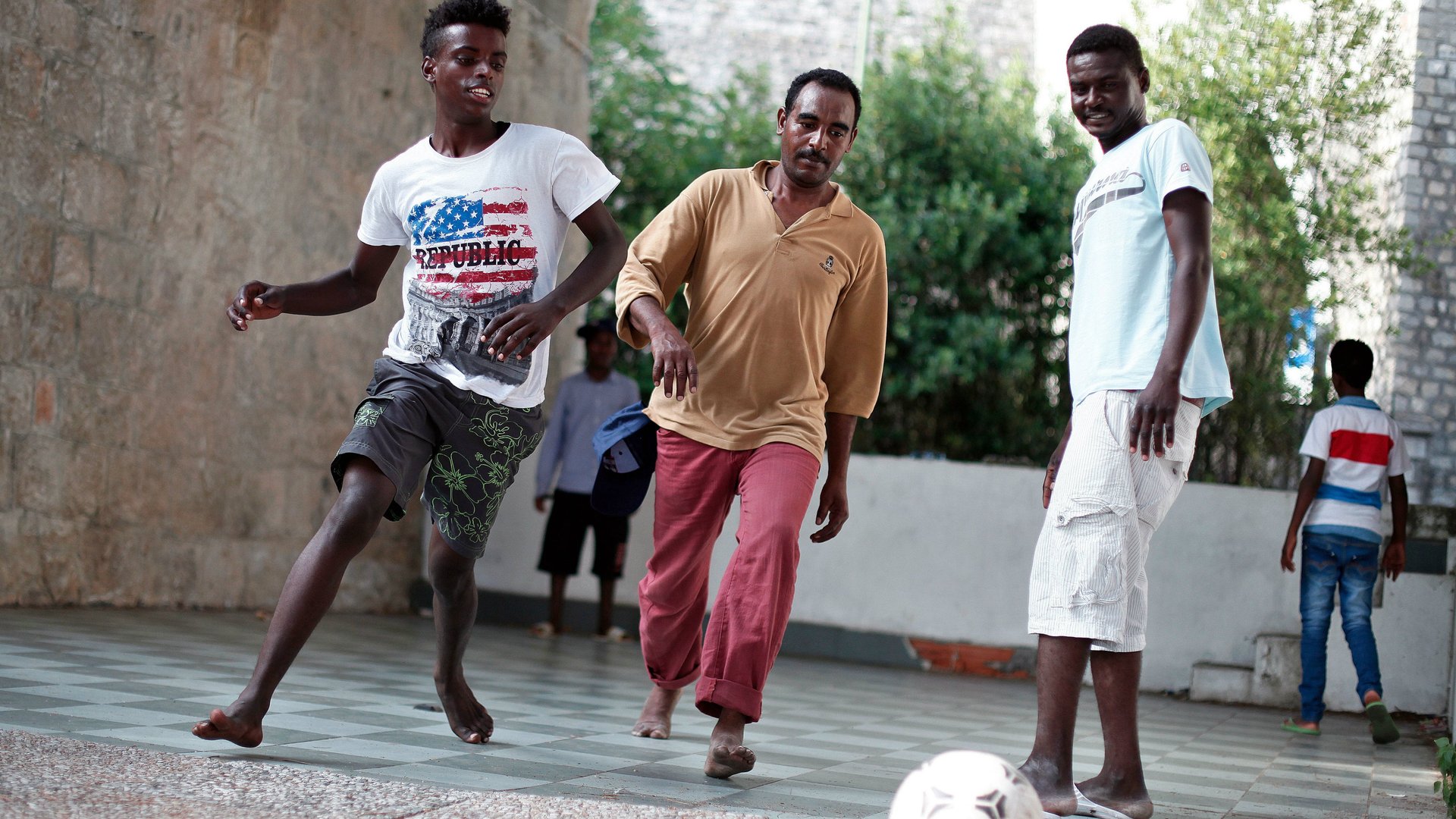Italy has forcibly deported Darfur migrants back to Sudan
A group of 48 Sudanese migrants are back in Sudan, after Italy delivered them to Khartoum last week with seemingly no questions asked.


A group of 48 Sudanese migrants are back in Sudan, after Italy delivered them to Khartoum last week with seemingly no questions asked.
According to eyewitnesses, Italian police detained the Sudanese from Ventimiglia, a border town near France, and then loaded them on two buses and deported them from Turin-Caselle Airport via a chartered EgyptAir flight.
“I saw two buses full of Sudanese youth being forcibly relocated,” said Musa Ibrahim, a Sudanese human rights activist and eyewitness based in Italy.
Ali, one of the Sudanese forcefully deported, described their arrest. They were held in an underground parking garage, hands bound. Sudanese authorities identified them and then placed them on a plane to Sudan’s capital, Khartoum. Upon arrival, Sudanese authorities beat Ali to the point of being unable to lie down, he said. He is now in hiding and does not know the status of the other Sudanese deported.
Eyewitnesses, including Ali, whose last name is undisclosed for his safety, said the deported migrants were from the restive Darfur region. Sudanese refugees often do not claim asylum in Italy due to tough living conditions within the country, Ibrahim said.
The group was originally meant to depart through Milan Mapensa Airport but Italian authorities redirected the flight to avoid protesters. Three protestors were arrested at the Milan airport.
The forced deportations stem from an agreement signed on Aug. 3 between Sudan and Italy to collaborate on efforts to curb Sudanese migration to Italy. The agreement, signed by Italy’s chief of police Franco Gabrielli and Sudan’s police director-general Hashim Osman, is part of a broader anti-migration cooperation between the European Union and Sudan.
The Italian Ambassador in Sudan, Fabrizio Lobasso, said the agreement signed this month between the two countries was “essential for the clear differentiation between the citizens of the two countries,” during the margins of the meeting. Members of the Italian Chamber of Deputies have questioned Italian authorities in speculation they broke the law by allowing Sudanese officials to choose migrants to deport.
While still investigating the situation, the UN Refugee Agency UNHCR has expressed concern about the risk of returning people that may have protection needs to Sudan. “UNHCR calls on Italian authorities to fully take into account individual circumstances and the human rights situation in the country of origin before forcibly returning persons to their country of origin,” said UNHCR’s Carlotta Sami.
The arrest and deportation of Sudanese migrants against their will is a reoccurring practice for some countries.
In July, Egyptian authorities deported 36 Sudanese citizens to Khartoum after their attempt to migrate to Italy. And last December, 800 Sudanese in Jordan were rounded up and sent home forcefully without due process, in many cases separating families between the countries.
The UN estimates at least 300,000 have died since 2003 from the conflict in Darfur. The pro-government “Janjaweed” militia, renamed the Rapid Support Force (RSF) in 2014, was the perpetrators of many of these lethal attacks.
It is this same militia that appears to be benefiting from an April EU aid package to Sudan, that includes military assistance and “migration management.” In a statement on Aug. 30 during a press conference held at the Ministry of Defense, RSF Commander Mohamed Hamdan “Hemeti” claimed that his forces are fighting illegal migration on behalf of Europe and had lost life and vehicles in this effort. “We are hard at work to aid Europe in containing the flow of migrants and if our valuable efforts are not well appreciated, we will open the desert to migrants,” he said in news reports.
RSF Spokesperson Adam Salih claims they have arrested 808 illegal migrants and nine human traffickers on the Libyan border this year.